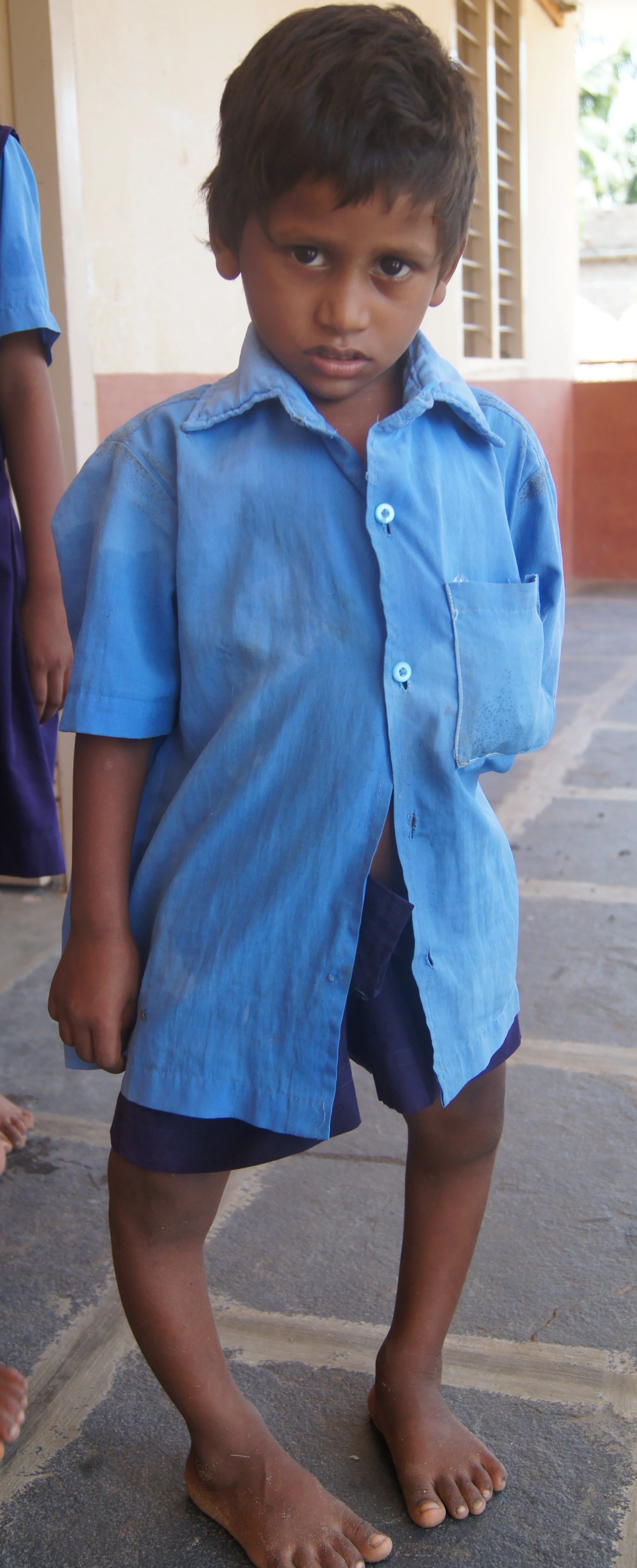
Fundraising for Establishing an English Medium School for Underprivileged Children.
Place: Pedavadlapudi, Andhra Pradesh, India.
Project Type: Education & Empowerment of the Marginalized
Pedavadlapudi village, located in the civil district of Guntur in the central southeastern part of India, is a rural community characterized by its reliance on agriculture. The village landscape is dominated by lush green fields, where crops such as rice, sugarcane, and vegetables are cultivated.
Despite its agricultural abundance, Pedavadlapudi faces significant socio-economic challenges. A considerable portion of its population consists of small and marginalized farmers who grapple with poverty on a daily basis. Limited access to resources, fluctuating market prices, and adverse weather conditions contribute to the struggles faced by these farmers, making poverty a pervasive issue in the village.
Challenges Faced by Poor Children in Education
Poor children in Pedavadlapudi face numerous challenges in accessing quality education. In particular, the situation in public schools catering to socially and economically backward castes children highlights several issues:
Traditional Teaching Methods:
Education in public schools follows
traditional teaching methods,
limiting interactive and engaging
learning experiences for students.
Lack of Technology Integration:
There is a notable absence of technology integration in classrooms, depriving students of exposure to modern educational tools and resources.
Absence of English Medium Education: English medium education is not available in public schools, hindering students' ability to compete in a globalized world where English proficiency is essential.
Inadequate Facilities: Public schools suffer from a lack of adequate infrastructure, including the absence of computer labs and science labs, essential for holistic learning.
Crowded Classrooms: Classrooms are overcrowded, making it challenging for teachers to provide individual attention to students and for students to concentrate on their studies.
Shortage of Teachers: There is a shortage of qualified teachers for various subjects, further compromising the quality of education available to students.
These challenges highlight the urgent need for establishing an English Medium School to ensure that all children, regardless of their social or economic background, have access to quality education that prepares them for success in the modern world.
Need of English Medium Education
for the Poor Children
In India, the hierarchical caste system
has long influenced access to education. Children from lower castes have often been ill-treated and discriminated against because of their social status. This discrimination has historically prevented many from receiving a quality education.
Access to English medium education is typically linked to one's social status, reinforcing the idea of privilege. Those born into higher social classes have had greater access to such education, which in turn perpetuates their privileged status.
The High Cost of English Education and Its Impact on Poor Families:
English education has always been more costly and mainly for the privileged. Poor families from all social classes, who didn't have enough money, sent their children to schools that taught in local languages.
Distance: English medium schools have mostly been in cities and towns, so the rural poor from all social groups missed out on English education.
The High Cost of English Education and Its Impact on Poor Families:
English education has always been more costly and mainly for the privileged. Poor families from all social classes, who didn't have enough money, sent their children to schools that taught in local languages.
Transformative power of Education in E.M. Education for Poor Children of all Castes:
For children from disadvantaged backgrounds, especially those who have faced discrimination and deprivation, English medium education can be transformative. Learning in English empowers them to negotiate with the world and create a new socio-cultural space for themselves. It builds confidence and self-respect, enabling these students to break free from the cycle of poverty and discrimination. By studying in English medium schools, poor and discriminated children can aspire to reach new heights and forge a better future.
Building Opportunities for the weaker sections of the village through Education in E.M.:
Our initiative aims to provide this crucial opportunity to poor children of all castes in Pedavadlapudi, helping them gain the skills and confidence needed to succeed in a globalized world.



